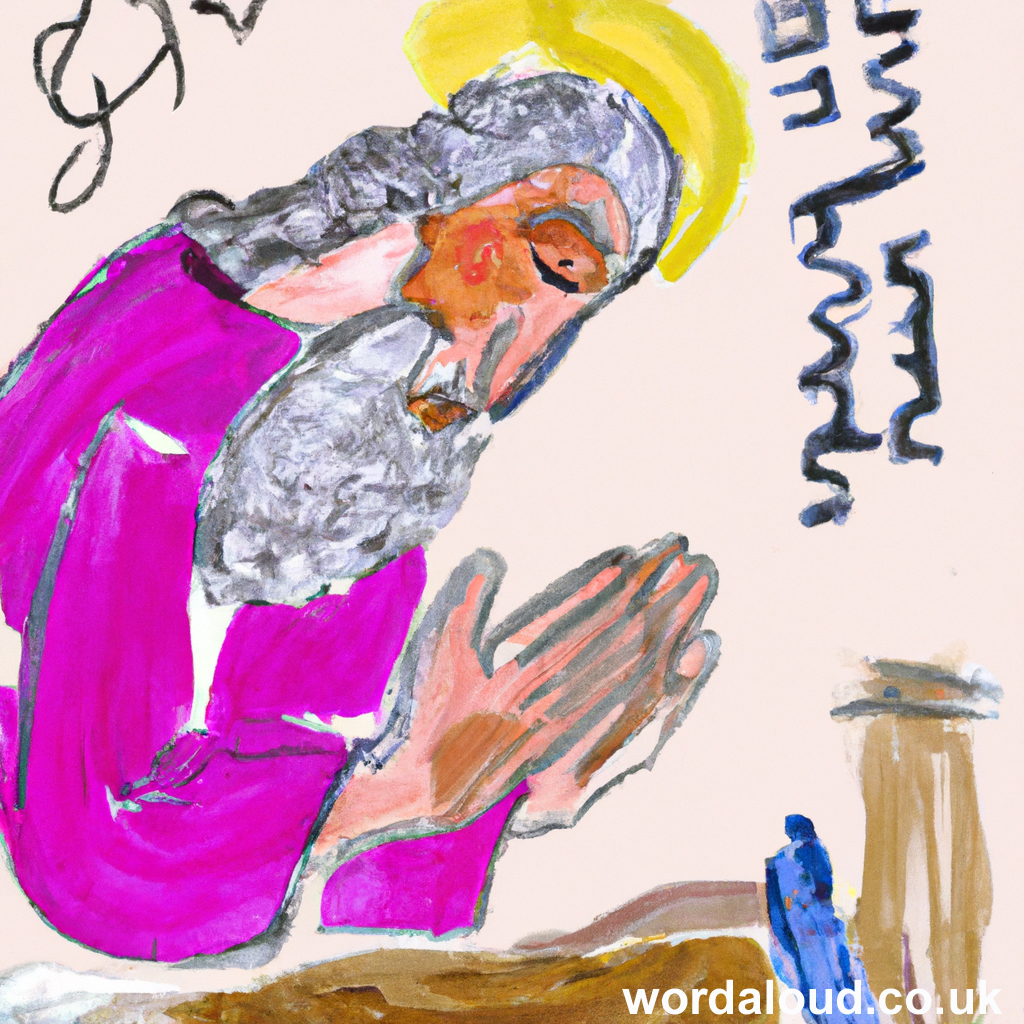Christian Art | Jesus’ Family
Mark 3: 31-35 – Week 3 Ordinary Time, Tuesday (Audio Bible KJV, Spoken Word)
31 ¶ There came then his brethren and his mother, and, standing without, sent unto him, calling him.
32 And the multitude sat about him, and they said unto him, Behold, thy mother and thy brethren without seek for thee.
33 And he answered them, saying, Who is my mother, or my brethren?
34 And he looked round about on them which sat about him, and said, Behold my mother and my brethren!
35 For whosoever shall do the will of God, the same is my brother, and my sister, and mother.
Jesus family and friends have worried in earlier verses about Jesus’ sanity. His friends have tried to seize him, to save him from himself. Now his mother and his brothers come to find him. It seems natural to assume they are still very concerned, and that there has been what they perceive to be a breach in the family, which may be linked in some way to Jesus’ move to Capernaum.
In one way or another, it seems Jesus is behaving in a way that his family, including Mary, simply don’t understand at all, and which seems to them to require what some now call an intervention. We may ask: what light does this shine on our understanding of what kind of person Jesus was and what his ministry entailed?
We think of the story so far. The Annunciation: Mary is told by Gabriel she is going to bear a child by the Holy Spirit. Mary is scared – a powerful, supernatural being has come to Mary, in what must have seemed an invasion into her life, to acclaim her virtue and say that she is blessed among women – and Mary knows that this child is to be extraordinary, the Son of the Most High, the Son of God.
Mary visits Elizabeth: there is a close connection between John the Baptist and Jesus since before they are both born; they are communicating while they are both in the womb and they are family. Do we say it is likely John the Baptist and Jesus were closely acquainted prior to Christ’s baptism in the river Jordan? John’s ‘One who comes after me’ could be equally translated, ‘One who follows me.’ John and Jesus could have spent a lot of time with each other, sharing a lifetime’s spiritual journey, before either began his public ministry. Perhaps it is natural to assume as well that Mary and Jesus’ family have had thirty years to get to know, to love, to live intimately with Jesus – and that this is a part of the back story to the scene in today’s Gospel verses. It is a further mystery. Perhaps one thing we can say with certainty is that Jesus simply could not be contained within a small-scale family. Jesus’ mission had to explode those constraints.
There are many, many questions – and the mystery remains. Thoughts such as these illuminate our reading of these Gospel verses, in which Jesus rebuffs his mother’s and brothers’ request to see him. Jesus’ words may seem harsh – indeed the cleverness irony bordering on flippancy. There is, though, a deep Christian truth here, which is beautifully transformative, even though the expression of this truth may seem to grow from domestic conflict. The many people who have crowded around Jesus are his family. We are Jesus’ family. He gives that to us. Within Jesus’ family, loved, included, valued, hanging on Jesus’ words, there are many people who have never felt so loved, so valued, so included, ever before. This is again a revolutionary moment, and we are part of it.
Jerusalem! The mountains surround her,
so the Lord surrounds his people,
both now and forever. (From Psalm 124/125)
Concluding Prayer
Almighty God,
to whom this world with all its goodness and beauty belongs,
give us the grace joyfully to live this day in your name,
and to fill it with an active love for you and our neighbour.
We make our prayer through our Lord.

![]()
Audio Bible KJV | Endnotes
Jesus’ Christian Family
Mark 3:31-35 recounts a moment when Jesus’ family came to see him, and Jesus responded in a surprising way. This passage offers insight into Jesus’ relationship with his family, and what it means to be a part of Jesus’ Christian family.
The passage begins by stating: ‘There came then his brethren and his mother, and, standing without, sent unto him, calling him.’ (Mark 3:31) Jesus’ family had come to see him, but they could not get to Jesus because of the crowd that surrounded him. So, they sent word to Jesus, asking him to come out and speak with them.
But when Jesus was told that his family was waiting for him, Jesus responded in an unexpected way. He said: ‘Who is my mother, or my brethren?’ (Mark 3:33) Then Jesus looked around at the people who were listening to him and said: ‘Behold my mother and my brethren! For whosoever shall do the will of God, the same is my brother, and my sister, and mother.’ (Mark 3:34-35)
This statement by Jesus is often interpreted to mean that he was rejecting his biological family in favour of a new spiritual family. However, this interpretation is not entirely accurate. Jesus did not reject his family, but he redefined what it meant to be a part of his family. Jesus’ family is not defined by biological or blood relations, but by a commitment to doing the will of God.
This concept of a spiritual family is echoed throughout the New Testament. John 1:12-13 states: ‘But as many as received him, to them gave he power to become the sons of God, even to them that believe on his name: Which were born, not of blood, nor of the will of the flesh, nor of the will of man, but of God.’ Here, the idea of being a part of God’s family is not based on biological relationships, but on belief in Jesus Christ.
In the Epistle to the Romans, the apostle Saint Paul expands on this idea. Saint Paul writes: ‘For as many as are led by the Spirit of God, they are the sons of God. For ye have not received the spirit of bondage again to fear; but ye have received the Spirit of adoption, whereby we cry, Abba, Father. The Spirit itself beareth witness with our spirit, that we are the children of God.’ (Romans 8:14-16) Here, Saint Paul emphasizes that being a part of God’s family is not just a matter of belief, but also of being led by the Holy Spirit and experiencing a deep sense of connection with God as our loving Father.
Through the history of the Church, theologians and religious authorities have reflected on the concept of being a part of Jesus’ family. Saint Augustine wrote about the importance of unity and love in the Christian family. He cited John: ‘Let us love one another, my brethren, for love is of God. And every one that loveth is born of God, and knoweth God.’ (1 John 4:7) Saint Augustine emphasized that being a part of Jesus’ family means loving and caring for one another, just as we would in a biological family.
In the modern era, Catholic and Protestant theologians continue to explore the concept of being a part of Jesus’ family. Pope Francis has spoken frequently about the importance of unity and compassion in the Christian family. In a homily in 2013, Pope Francis said: ‘The Christian community is not an exclusive, closed sect, but a missionary community, a community that shares the good news with everyone.’ Francis emphasizes that being a part of Jesus’ family means reaching out to others and welcoming them into the family of God.
C.S. Lewis, who was an Anglican, wrote about the importance of being a part of Jesus’ family. In his book Mere Christianity, Lewis writes: ‘The Christian is called not to individualism but to membership in the mystical body.’ C.S. Lewis emphasizes that being a part of Jesus’ family means being connected to all other believers, and working together for the sake of the Gospel.
Our thought of spiritual family emphasizes the importance of love, unity, and compassion, as well as a deep connection with God as our loving Father. All are welcome. We are invited to be a part of Jesus’ family.








